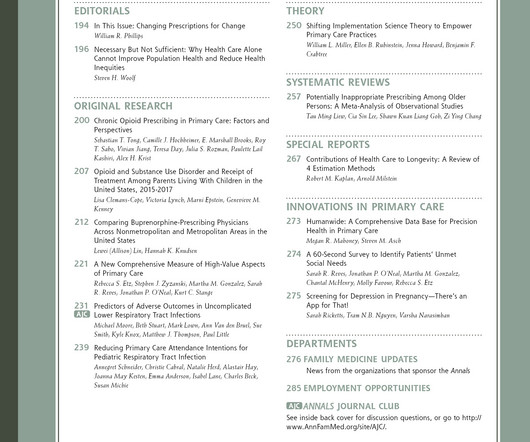Project ECHO Rheumatology - Rationale and Results from a Multi-Method Study to Capture Impact [Musculoskeletal and rheumatology]
Annals of Family Medicine
NOVEMBER 20, 2024
Launched in 2017, Project ECHO Rheumatology (‘ECHO’) has welcomed over 500 primary care clinicians provincially to learn about rheumatic disease diagnoses and management. ECHO is a promising education model that builds capacity within primary care to manage rheumatic conditions more adeptly and wisely.




























Let's personalize your content